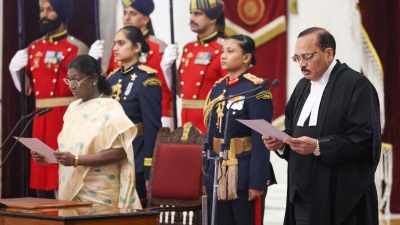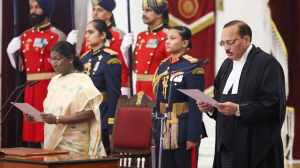Tribal dialects dying in Orissa
Sandwiched between government apathy and the growing need to be a part of the dominant culture, tribals of Orissa are fast losing touch with...

Sandwiched between government apathy and the growing need to be a part of the dominant culture, tribals of Orissa are fast losing touch with their mother-tongue.
The state’s rich repository of tribal languages is depleting fast. This, despite the government’s stand vis-a-vis tribals and the need to preserve their dialects.
While states like MP, Maharashtra, Rajasthan and West Bengal have come out with a tribal-friendly language policy, Orissa has no clear-cut language policy so far. As a result, only 25 tribal groups — of the total 65 — have survived the onslaught of foreign languages and retained their own dialects. The rest have gradually come to accept Oriya as their mother-tongue.
The education scenario itself speaks volumes about the state government’s apathy to preserve tribal languages. None of the tribal dialects are taught in schools, leave aside their use as a medium of teaching.
The lone experiment to introduce a tribal dialect in the school curriculum was made by the Biju Patnaik Government in the early 90s when C.P. Majhi was education minister. Majhi had introduced a local dialect, Ol Chiki, as a subject in 20 primary schools of Mayurbhanj, Keonjhar and Sundargarh districts.
While the government has been apathetic, the communities have hardly fought for their rights to speak their tongue. Most of the efforts by people like Pandit Raghunath Murmu, Mangei Gamang, Dayanidhi Mallick and Lako Bodhra to develop scripts for Santhal, Saura, Kui and Ho communities have proved to be half-hearted.
The exceptions have been Rairangpur-based NGO, MBTA and the Gunupur-based ASICA that are running schools to teach Santhali and Saura students in their own dialects.






- 01
- 02
- 03
- 04
- 05

























